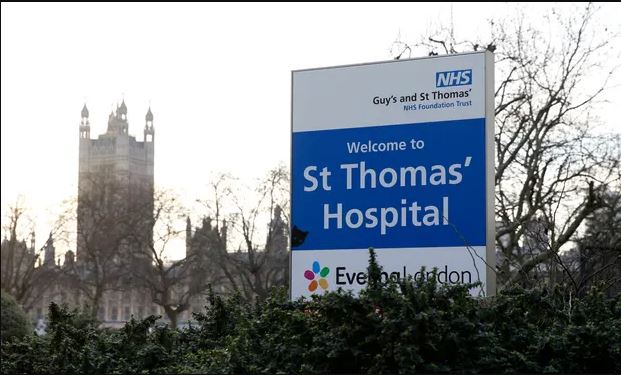In a London hospital, a patient with monkeypox was treated in isolation.

After being diagnosed with monkeypox, a rare viral infection, a patient is being treated in a specialized unit in London.
According to the UK Health Security Agency (UKHSA), the person had recently travelled to Nigeria, where they are believed to have contracted the sickness. They are being treated at Guy’s and St Thomas’ infectious illness unit in an isolation unit.
Although monkeypox can be shared by intimate contact with an infected person, the CDC claims that it is not easily distributed and that most people recover in a few of weeks.
As a precaution, the UKHSA said its specialists were working closely with the NHS and that those who may have had close contact with the patient will be contacted.
Fever, headache, muscle aches, backache, swollen lymph nodes, chills, and tiredness are common early signs of monkeypox. A rash may appear, typically beginning on the face and spreading to other parts of the body. The rash goes through several stages before forming a scab that comes off.
“It is important to emphasize that monkeypox does not travel easily between people and the overall risk to the general public is very low,” said Dr. Colin Brown, director of clinical and emerging diseases at the UKHSA.
“UKHSA and the NHS have well-established and rigorous infection control procedures for dealing with cases of imported infectious disease, which will be scrupulously implemented,” he continued.
“The patient is being treated in our specialist isolation unit at St Thomas’ hospital by expert clinical staff with strict infection prevention procedures,” said Dr. Nicholas Price, director of NHSE high consequence infection diseases (airborne) network and consultant in infectious diseases at Guy’s and St Thomas’.
The virus was spread by rodents and might be caught through sick wild animals in parts of west and central Africa, according to the NHS.
Only a few people in the UK have been diagnosed with monkeypox, and they’ve all travelled to West Africa or had close contact with someone who has.
Monkeypox was originally recognized in 1958, when outbreaks of a “pox-like disease” were discovered in captivity monkeys, according to Public Health England.
Since then, the majority of cases have been recorded from the DRC and Nigeria, with a few instances from other countries.
After rodents were brought from Africa, instances were reported in humans and pet prairie dogs in the United States in 2003.
In December 2019, a patient in England was diagnosed with monkeypox, the fourth instance in the UK since the first imported cases the year before, according to PHE. Israel and Singapore have each had incidents.

